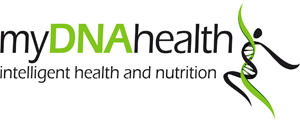Webinar 4. The final in our series.
Nutrigenomics influences on the liver detoxification pathways
The webinar covers:
the basic liver detoxification pathways that we use to remove our steroid hormones (estrogen, cortisol) and looks at some of the gene tests that can be done to monitor our genetic predisposition to estrogen sensitive cancers or to cortisol causing weight gain.
It will introduce the concept of nutrients that are used to support the various gene deficiencies in these pathways.
Webinar 3 in our series of four
The webinar covers:
the basic liver detoxification pathways that we use to remove our steroid hormones (estrogen, cortisol) and looks at some of the gene tests that can be done to monitor our genetic predisposition to estrogen sensitive cancers or to cortisol causing weight gain.
It will introduce the concept of nutrients that are used to support the various gene deficiencies in these pathways.
Webinar 2 in our series of four
Nutrigenomics and fat sensitivity
The webinar covers:
- Common gene tests used for assessing whether fat is over-absorbed or causes inflammation in some people
- Does saturated Fat absorption cause inflammation and tendency to weight gain and atherosclerosis?
- Limitation of gene testing
- Importance of history and bio-marker testing (Triglyceride: HDL ratio ) to complete the picture of cholesterol assessment
- The role that cholesterol plays in the generation of atherosclerosis.
- The benefits and dangers of cholesterol in our diet.
- The importance of inflammation and sugar in the genesis of obesity and atherosclerosis.
- The evidence for genetic tests for sensitivity to saturated fats in our diet.
Our First Webinar
Nutrigenomics webinar: Reliability of genetic tests for personalised nutrition
Dr Carmichael explains the science behind genetic testing for personalised nutrition, the reliability of these tests and interpretation of the results for clients. He introduces the science of nutrigenomics and epigenetics.
Learning outcomes:
- Understand the science of nutrigenomics.
- Understand that epigenetics is the influence of our environment on our gene expression. We can influence our epigenetics positively or negatively by what we are exposed to and what we eat.
- Feel confident about the reliability genetic testing for high and low penetrance genes.
- Gain knowledge about how to interpret the genetic results for your clients.
- Understand that gene tests are a guide to be used in context with your clinical knowledge of the patient in front of you.
- How to ensure that you are adequately trained to integrate it into your practice.
REGISTER FOR THE WEBINARS
Register here and we’ll add you to the invite list. We’ll send you an invite closer to the time as well as a set of the course work.
You can also select the webinars you are interested in.

